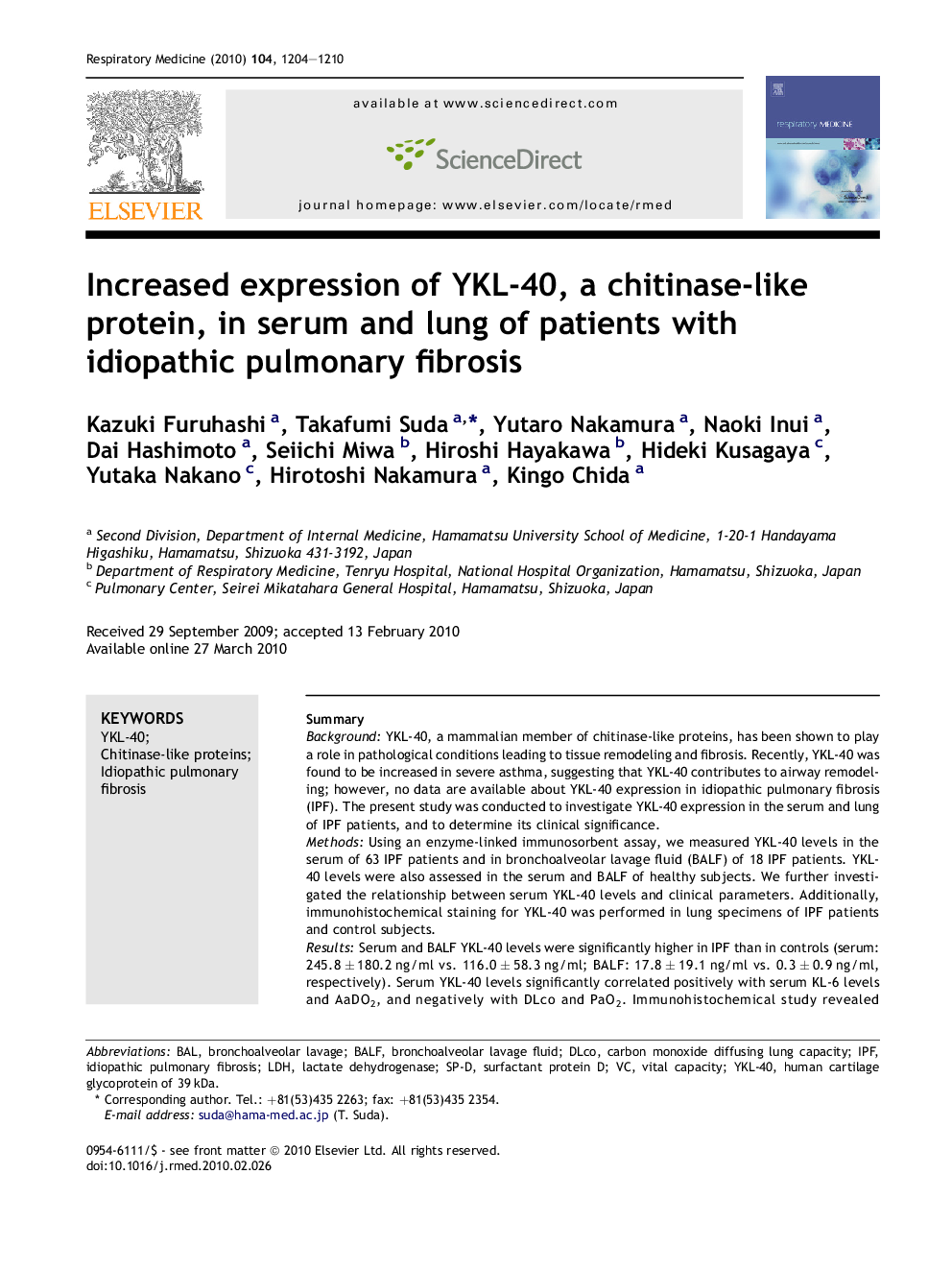| Article ID | Journal | Published Year | Pages | File Type |
|---|---|---|---|---|
| 4210966 | Respiratory Medicine | 2010 | 7 Pages |
SummaryBackgroundYKL-40, a mammalian member of chitinase-like proteins, has been shown to play a role in pathological conditions leading to tissue remodeling and fibrosis. Recently, YKL-40 was found to be increased in severe asthma, suggesting that YKL-40 contributes to airway remodeling; however, no data are available about YKL-40 expression in idiopathic pulmonary fibrosis (IPF). The present study was conducted to investigate YKL-40 expression in the serum and lung of IPF patients, and to determine its clinical significance.MethodsUsing an enzyme-linked immunosorbent assay, we measured YKL-40 levels in the serum of 63 IPF patients and in bronchoalveolar lavage fluid (BALF) of 18 IPF patients. YKL-40 levels were also assessed in the serum and BALF of healthy subjects. We further investigated the relationship between serum YKL-40 levels and clinical parameters. Additionally, immunohistochemical staining for YKL-40 was performed in lung specimens of IPF patients and control subjects.ResultsSerum and BALF YKL-40 levels were significantly higher in IPF than in controls (serum: 245.8 ± 180.2 ng/ml vs. 116.0 ± 58.3 ng/ml; BALF: 17.8 ± 19.1 ng/ml vs. 0.3 ± 0.9 ng/ml, respectively). Serum YKL-40 levels significantly correlated positively with serum KL-6 levels and AaDO2, and negatively with DLco and PaO2. Immunohistochemical study revealed enhanced YKL-40 expression in alveolar macrophages and bronchiolar epithelia adjacent to fibrotic lesions in IPF, but not in controls.ConclusionsThese data suggest that YKL-40 is increased in the circulation and lungs of IPF patients, suggesting that this glycoprotein is associated with the pathophysiology of IPF.
